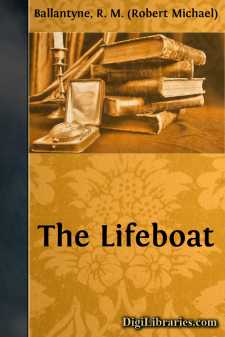Categories
- Antiques & Collectibles 13
- Architecture 36
- Art 48
- Bibles 22
- Biography & Autobiography 813
- Body, Mind & Spirit 142
- Business & Economics 28
- Children's Books 15
- Children's Fiction 12
- Computers 4
- Cooking 94
- Crafts & Hobbies 4
- Drama 346
- Education 46
- Family & Relationships 57
- Fiction 11829
- Games 19
- Gardening 17
- Health & Fitness 34
- History 1377
- House & Home 1
- Humor 147
- Juvenile Fiction 1873
- Juvenile Nonfiction 202
- Language Arts & Disciplines 88
- Law 16
- Literary Collections 686
- Literary Criticism 179
- Mathematics 13
- Medical 41
- Music 40
- Nature 179
- Non-Classifiable 1768
- Performing Arts 7
- Periodicals 1453
- Philosophy 64
- Photography 2
- Poetry 896
- Political Science 203
- Psychology 42
- Reference 154
- Religion 513
- Science 126
- Self-Help 84
- Social Science 81
- Sports & Recreation 34
- Study Aids 3
- Technology & Engineering 59
- Transportation 23
- Travel 463
- True Crime 29
Sunk at Sea
Categories:
Description:
Excerpt
Treats of Our Hero’s Early Life, and Touches on Domestic Matters.
William Osten was a wanderer by nature. He was born with a thirst for adventure that nothing could quench, and with a desire to rove that nothing could subdue.
Even in babyhood, when his limbs were fat and feeble, and his visage was round and red, he displayed his tendency to wander in ways and under circumstances that other babies never dreamt of. He kept his poor mother in a chronic fever of alarm, and all but broke the heart of his nurse, long before he could walk, by making his escape from the nursery over and over again, on his hands and knees; which latter bore constant marks of being compelled to do the duty of feet in dirty places.
Baby Will never cried. To have heard him yell would have rejoiced the hearts of mother and nurse, for that would have assured them of his being near at hand and out of mischief—at least not engaged in more than ordinary mischief. But Baby Will was a natural philosopher from his birth. He displayed his wisdom by holding his peace at all times, except when very hard pressed by hunger or pain, and appeared to regard life in general in a grave, earnest, inquiring spirit. Nevertheless, we would not have it understood that Will was a slow, phlegmatic baby. By no means. His silence was deep, his gravity profound, and his earnestness intense, so that, as a rule, his existence was unobtrusive. But his energy was tremendous. What he undertook to do he usually did with all his might and main—whether it was the rending of his pinafore or the smashing of his drum!
We have said that he seldom or never cried, but he sometimes laughed, and that not unfrequently; and when he did so you could not choose but hear, for his whole soul gushed out in his laugh, which was rich, racy, and riotous. He usually lay down and rolled when he laughed, being quite incapable of standing to do it—at least during the early period of babyhood. But Will would not laugh at everything. You could not make him laugh by cooing and smirking and talking nonsense, and otherwise making an ass of yourself before him.
Maryann, the nurse, had long tried that in vain, and had almost broken her heart about it. She was always breaking her heart, more or less, about her charge, yet, strange to say, she survived that dreadful operation, and ultimately lived to an extreme old age!
“Only think,” she was wont to say to Jemima Scrubbins, her bosom friend, the monthly nurse who had attended Will’s mother, and whose body was so stiff, thin, and angular, that some of her most intimate friends thought and said she must have been born in her skeleton alone— “Only think, Jemimar, I give it as my morial opinion that that hinfant ’asn’t larfed once—no, not once—durin’ the last three days, although I’ve chirruped an’ smiled an’ made the most smudgin’ faces to it, an’ heaped all sorts o’ blandishments upon it till—. Oh! you can’t imagine; but nothink’s of any use trying of w’en you can’t do it; as my ’usband, as was in the mutton-pie line, said to the doctor the night afore he died—my ’art is quite broken about it, so it is.”
To which Jemima was wont to reply, with much earnestness—for she was a sympathetic soul, though stiff, thin, and angular— “You don’t say so, Maryhann!...












